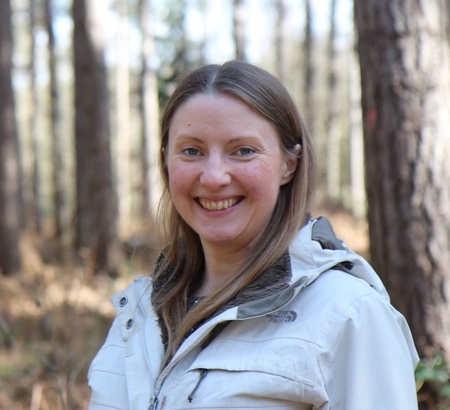Kate is a Research Fellow who will be working for the Consortium Against Pain InEquality (CAPE). She joined the group in January 2022, after relocating from Lincolnshire.
Tell us a bit about yourself
My journey to scientific research has been a convoluted one! I left school with a firm foundation in Arts and Humanities, and enrolled at the University of St Andrews to study Social Anthropology. Luckily, I happened to sit some sub-honours Psychology modules, which convinced me to transfer and graduate with a Psychology degree. After a short hiatus from academia (where I worked in publishing) I took the plunge with a change in career direction, completing some science modules with the Open University before studying for an MSc in Public Health Nutrition. The aim was to practise as a registered nutritionist, but during my studies I discovered epidemiology and there was no turning back!
I went on to gain my PhD from the University of Leeds, in the Nutritional Epidemiology Group. My thesis focussed on obesity and the monetary costs of diets. By this time, I was increasingly interested in physical activity and musculoskeletal health as well. Two post-doc positions followed: looking at dietary assessment methods for the National Diet and Nutrition Survey (University of Leeds), then modelling the geographic distribution of osteoarthritis across England (Arthritis Research UK Centre for Sport, Exercise and Osteoarthritis, University of Nottingham). Then I moved to the University of Lincoln, where I was a Senior Lecturer in Physical Activity and Health for 5 years. The move to Aberdeen is a move back into a research-focussed role, which I have looked forward to.
What will you be working on with the Epi Group?
I’ll be working with CAPE, which aims to investigate the role of adverse childhood experiences, such as neglect, bereavement or abuse, in the vulnerability to and management of chronic pain. There is some evidence that negative and stressful events experienced during childhood could alter a person’s vulnerability to pain (and other adverse health outcomes) in later life. Adverse childhood experiences disproportionately affect some population groups and are therefore potential contributors to health inequalities.
CAPE draws together work packages from across multiple disciplines, with partners in the University of Dundee, University College London, University of Stirling, University of Edinburgh and the University of Aberdeen. Here at Aberdeen we will be leading some epidemiological work, using data from existing large population cohort studies to investigate the associations between childhood experiences and chronic pain, and how these may be mediated by other life experiences, such as social support and mental health.
Why did you choose Aberdeen?
Serendipity! I was looking to get back into epidemiology research and wanted to move to Scotland for family reasons. I was delighted to see a post advertised that matched what I wanted on both fronts. It was soon clear that the Epidemiology Group was a perfect fit for me. I really admired its track record for good-quality, impactful research that has the potential to improve people’s quality of life and I’m very much looking forward to learning from the varied expertise within the group.
What do you enjoy doing outside of work?
I’m looking forward to exploring Scotland with my family and hope to spend plenty of time in the beautiful hills, forests and on the beaches (as long as I can bear the midges).


